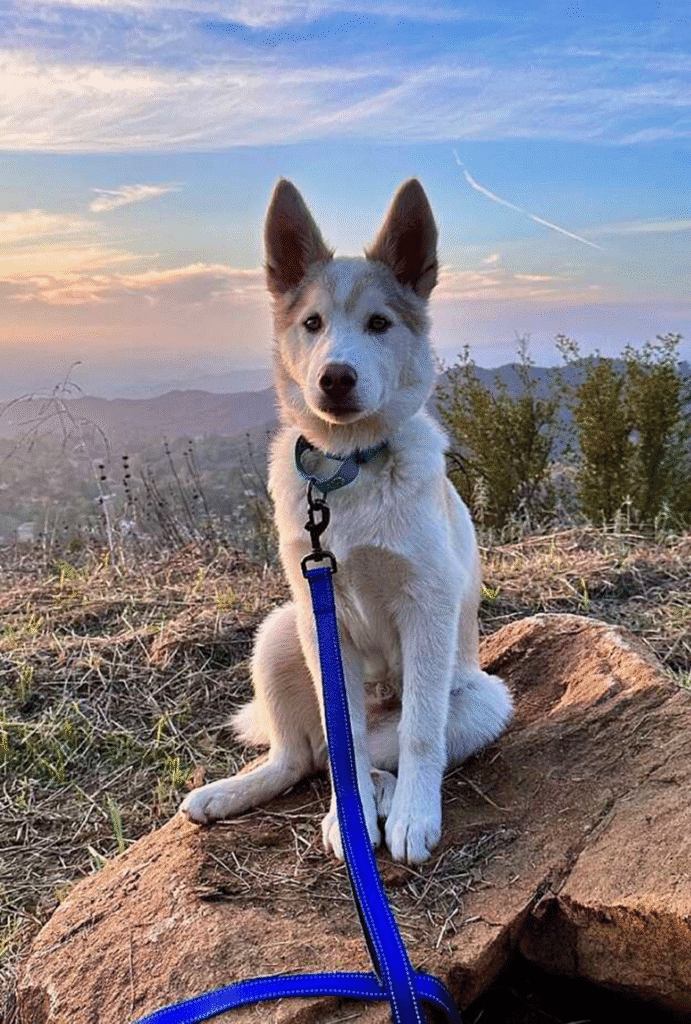
His name was Casper, a title bestowed upon him by the small girl who giggled whenever his tail wagged. He was barely six months old, a fluffy cloud of pristine white fur and boundless, clumsy affection. His world, until that morning, had consisted of warm laps, quick hands offering treats, and the specific smell of his favorite bed.
Then came the pole.
It was an unremarkable, gray metal pillar, part of a roadside barrier near a busy intersection. Casper had been led there on a short, heavy rope, which was then secured with a knot that felt horribly tight. The last thing he remembered was the familiar scent of his owner, a hurried, shaky kiss on his head, and the terrifying sound of a car door slamming shut, followed by the immediate, deafening roar of traffic speeding away.
Casper didn’t understand. This wasn’t a walk, or a quick errand stop. This was abandonment.
At first, he believed it was a game. He pulled, trying to free the rope to follow the disappearing car. He barked, a high-pitched, hopeful yelp that was instantly swallowed by the city noise. He strained against the tether until his neck ached, his bright, intelligent eyes fixated on the stream of passing vehicles. They’ll be back, he told himself with every breath. They just forgot me.

The sun climbed high, baking the asphalt. His playful white fur, meant for softness, grew hot and heavy. He was surrounded by the noise and scent of thousands of people, yet utterly alone. He lay down in the small radius allowed by his leash, curling into a tight, miserable ball, hoping that if he was patient, the world would reverse itself. .
By the second day, the ache in Casper’s heart had superseded the ache in his neck. Hope had curdled into confusion, and confusion was hardening into fear. His water bowl, a cheap plastic dish left next to him, was empty, quickly evaporated by the sun. His small bag of kibble had been scattered by an ill-tempered gust of wind.
He was starving, thirsty, and, most painfully, betrayed.
What made his predicament so agonizing was his extreme visibility. He wasn’t hidden in an alley or tucked away in a forest. He was right there, next to the road, a picture of helpless innocence tied to an unmoving sentinel of neglect. Cars slowed for the light, passengers often glancing right at him.
He learned the various reactions of the humans who saw him:
- The Glancers: A quick look, a furrowed brow, and then a rapid return to their phone or conversation. They saw the dog, but not the desperation.
- The Sympathizers: They would slow, maybe reach a hand out toward the window, only to realize the logistics—stopping traffic, untying the knot, taking on a commitment—were too much for a momentary impulse. They drove away with a look of regret.
- The Tourists: People who actually stopped and took pictures. They documented his suffering for a digital audience, but didn’t solve the immediate, physical problem of the rope around the pole.

Casper’s brilliant white coat, which had been his beauty, was now a source of distress, showing every fleck of dirt and shadow of his growing despair. He tried to stay clean, nudging his nose against his chest, but the exhaustion was too deep. He slept in short, fitful bursts, waking up terrified every time a loud truck rumbled past his ear.
The third day brought a chilling rain, a harsh change from the earlier heat. Casper was soaked to the bone. His thick fur, once a fluffy defense, was now heavy and matted, clinging to his slender frame. He huddled as close to the pole as possible, shivering uncontrollably. His whimpers were weak now, lost entirely beneath the steady drumming of the rain on the pavement. He no longer pulled. He no longer barked. He had resigned himself to waiting for a future he couldn’t imagine.
He was losing his youthful spirit. The exhaustion was absolute. He thought of his cozy bed, the smell of shampoo, and the sound of the little girl’s laugh, and a profound, hollow emptiness settled over him.
It was in this moment of utter defeat that a car pulled over, not stopping for the light, but deliberately pulling onto the shoulder. The engine turned off.
A woman, Amelia, stepped out. She wasn’t carrying a camera, or a treat. She carried a single, worn towel and a determination that cut through the rain and the apathy of the street. Amelia had driven this way twice a day for three days, wrestling with the guilt of seeing the puppy tied there, until the sight of him shivering finally shattered her ability to ignore it.

She approached slowly, speaking in a low, continuous murmur. “Oh, sweet boy. You are so brave. We’re going to fix this now.”
Casper didn’t react with excitement. He barely moved. He watched her approach with the glazed distrust of a creature who had learned that hands, even kind ones, could leave you tied to a pole.
Amelia knelt in the mud and the rain, not minding her clothes. She gently reached for the heavy rope, avoiding touching Casper’s slick, chilled body. The knot was tight, swollen by the water. She struggled, her fingers raw, but she worked methodically, determinedly.
Then, with a small, grating sound, the rope slipped free.
The rope dropped into the mud. Casper was free, but he remained still, unsure if the constraint was psychological or physical. Amelia didn’t grab him. She just held the towel out, a soft, inviting promise.
She waited.

After a long, silent moment, Casper took a tentative step. The simple action—the weightless freedom of his own body moving unconstrained—was overwhelming. He took another step, and another, until his nose nudged the soft towel in her hand.
Amelia wrapped him tightly, pulling him close to her warm, beating heart. The sudden warmth of her embrace and the sound of her steady breathing were the most intoxicating scents he had ever known. He felt the tension of three days finally break. He didn’t lick or wiggle; he just leaned, a silent, profound surrender.
In that moment, nestled against a stranger’s chest, Casper knew that the wait was over. The countless eyes that had passed him by no longer mattered. One heart had stopped, one hand had helped, and that was enough to start his life over. The white puppy, no longer a monument to cruelty, was finally carried home.


